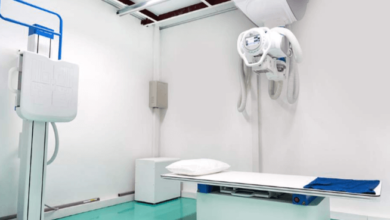The Benefits of Professional Urgent Care Services

When unexpected health issues arise, knowing where to go for timely and effective care can make all the difference. While emergency rooms (ERs) are often the go-to for serious, life-threatening conditions, they are not always the best choice for non-life-threatening illnesses or injuries. This is where professional urgent care services come into play. Urgent care centers offer a convenient, cost-effective, and efficient alternative to ERs, providing high-quality medical care when you need it most. In this article, we will explore the many benefits of professional urgent care services and why they are becoming an increasingly popular option for patients seeking immediate medical attention.
Convenient Access to Medical Care
One of the primary benefits of professional urgent care services is the convenience they offer. Urgent care centers are designed to provide quick access to medical care without the long wait times often associated with emergency rooms. Many urgent care facilities are open seven days a week, with extended hours that include evenings and weekends. This makes them an ideal option for those who need medical attention outside of regular office hours or for conditions that cannot wait for a primary care appointment.
Moreover, urgent care centers are typically located in easily accessible areas, such as shopping centers or residential neighborhoods, making them convenient for patients who need care quickly. This accessibility reduces the need to travel long distances to receive medical attention, which is especially important for those with limited mobility or transportation options.
Cost-Effective Healthcare
Urgent care services are also a cost-effective alternative to emergency room visits. ER visits can be expensive, especially for patients with high-deductible insurance plans or those without insurance. In contrast, urgent care centers offer more affordable pricing for medical services, often at a fraction of the cost of an ER visit.
Most urgent care centers accept a wide range of insurance plans, and for those paying out of pocket, the costs are generally transparent and predictable. This makes urgent care an attractive option for individuals and families looking to manage healthcare expenses without sacrificing the quality of care.
Additionally, the lower cost of urgent care services can help reduce the overall burden on the healthcare system by diverting non-emergency cases away from overcrowded emergency rooms, allowing ERs to focus on more critical patients.
Shorter Wait Times
One of the most frustrating aspects of seeking medical care in an emergency room is the often lengthy wait times. ERs prioritize patients based on the severity of their condition, which means those with less urgent needs may wait for hours before being seen. In contrast, urgent care centers operate on a first-come, first-served basis, with much shorter wait times for most patients.
The streamlined processes at urgent care facilities allow for faster check-ins, quicker assessments, and more efficient treatment. This means you can receive the care you need without spending hours in a waiting room, allowing you to return to your daily routine more quickly.
Comprehensive Medical Services
Urgent care centers are equipped to handle a wide range of medical conditions and offer comprehensive services that go beyond basic first aid. Common conditions treated at urgent care centers include minor injuries like sprains, fractures, and cuts, as well as illnesses such as the flu, colds, infections, and allergies. They also provide diagnostic services like X-rays, lab tests, and physical exams.
In addition to treating acute conditions, many urgent care centers offer preventive services such as vaccinations, routine physicals, and screenings. This makes them a convenient option for individuals who need quick access to routine healthcare services without the need to schedule an appointment weeks in advance.
Experienced and Qualified Medical Staff
Another significant benefit of professional urgent care services is the level of expertise provided by the medical staff. Urgent care centers are staffed by experienced healthcare professionals, including board-certified physicians, nurse practitioners, and physician assistants. These professionals are trained to diagnose and treat a wide range of medical conditions, ensuring that patients receive high-quality care.
The medical staff at urgent care centers often have backgrounds in emergency medicine, family medicine, or internal medicine, which equips them with the skills necessary to handle urgent but non-life-threatening conditions. Their expertise allows them to provide accurate diagnoses, appropriate treatments, and timely referrals to specialists or emergency care when needed.
No Appointment Necessary
Unlike many primary care practices where appointments are required, urgent care centers allow patients to walk in without an appointment. This makes it easier for individuals to seek medical attention when unexpected health issues arise. The walk-in model is especially beneficial for those with busy schedules who may not have the flexibility to wait for an appointment with their primary care provider.
This flexibility is also advantageous for patients who may not have an established relationship with a primary care physician or are traveling and need immediate medical care. Urgent care centers provide a reliable option for those who need prompt treatment without the hassle of scheduling and waiting for an appointment.
Ideal for Non-Life-Threatening Conditions
Urgent care centers are specifically designed to handle non-life-threatening conditions that still require timely medical attention. This includes conditions such as minor burns, cuts that need stitches, fractures, sprains, ear infections, urinary tract infections, and respiratory illnesses. By focusing on these types of conditions, urgent care centers can provide specialized care that is often faster and more efficient than what might be available in an emergency room setting.
For patients with conditions that do not warrant a trip to the ER but still need to be addressed promptly, urgent care centers offer the perfect balance of accessibility, expertise, and speed. This allows patients to receive appropriate care without overburdening emergency rooms or waiting for days to see a primary care provider.
Coordination with Primary Care
Urgent care centers are not meant to replace primary care physicians but to complement them. After receiving treatment at an urgent care center, patients are often advised to follow up with their primary care provider for ongoing care and management of their condition. Urgent care centers typically send a summary of the visit to the patient’s primary care provider to ensure continuity of care.
This coordination between urgent care and primary care ensures that patients receive comprehensive care that addresses both their immediate needs and long-term health. It also helps prevent gaps in treatment and ensures that all aspects of a patient’s health are monitored and managed effectively.
Reduced Risk of Infection
Emergency rooms are often filled with patients suffering from a variety of illnesses, including contagious diseases. For individuals with compromised immune systems, the elderly, or those with young children, the risk of exposure to infectious diseases in an ER can be a significant concern.
Urgent care centers, which typically treat fewer patients and handle less critical cases, offer a safer environment with a lower risk of exposure to contagious diseases. Additionally, many urgent care centers have implemented strict infection control measures, such as regular sanitization and social distancing protocols, to further reduce the risk of infection.
Support for Overwhelmed Emergency Rooms
By providing an alternative for non-life-threatening conditions, urgent care centers play a crucial role in relieving the burden on overcrowded emergency rooms. This allows ERs to focus on treating patients with severe and life-threatening conditions, improving the overall efficiency of the healthcare system.
During times of increased demand, such as flu season or public health emergencies, the availability of urgent care services helps prevent overwhelming emergency rooms and ensures that all patients receive the appropriate level of care. This not only benefits individual patients but also contributes to better resource allocation within the healthcare system as a whole.
Peace of Mind
Knowing that professional urgent care services are available when you need them provides peace of mind. Whether it’s a child’s high fever late at night, a painful sprain on the weekend, or a sudden illness while traveling, having access to an urgent care center means you don’t have to wait or worry about where to go for care.
Urgent care centers provide a reliable and accessible option for addressing health concerns quickly and effectively. This peace of mind is invaluable, especially in situations where waiting for care could lead to increased discomfort or complications.
FAQs
When should I go to an urgent care center instead of an emergency room? You should go to an urgent care center for non-life-threatening conditions such as minor injuries, infections, or illnesses that require timely treatment but are not severe enough to warrant a trip to the emergency room.
Are urgent care services covered by insurance? Most urgent care centers accept a wide range of insurance plans. However, it’s always a good idea to check with the center and your insurance provider before your visit to understand what services are covered.
How long will I typically wait at an urgent care center? Wait times at urgent care centers are generally much shorter than at emergency rooms. Most patients are seen within 15 to 30 minutes, depending on the number of people ahead of you.
Can urgent care centers handle pediatric cases? Yes, many urgent care centers are equipped to treat pediatric patients for common conditions such as ear infections, fevers, minor injuries, and respiratory illnesses.
What should I bring with me to an urgent care visit? Bring a valid ID, your insurance card, and a list of any medications you are currently taking. If you have any relevant medical records, it’s helpful to bring those as well.
Will the urgent care center communicate with my primary care doctor? Yes, most urgent care centers will send a summary of your visit to your primary care provider to ensure continuity of care and follow-up.
Conclusion
Professional urgent care services offer numerous benefits, making them an essential part of the modern healthcare landscape. With their convenient locations, shorter wait times, cost-effective care, and comprehensive medical services, urgent care centers provide a valuable alternative to emergency rooms for non-life-threatening conditions. Whether you need immediate medical attention outside of regular office hours or simply want to avoid the high costs and long waits associated with ER visits, urgent care centers are a reliable and accessible option. They offer the peace of mind that comes from knowing quality care is just around the corner when you need it most.





